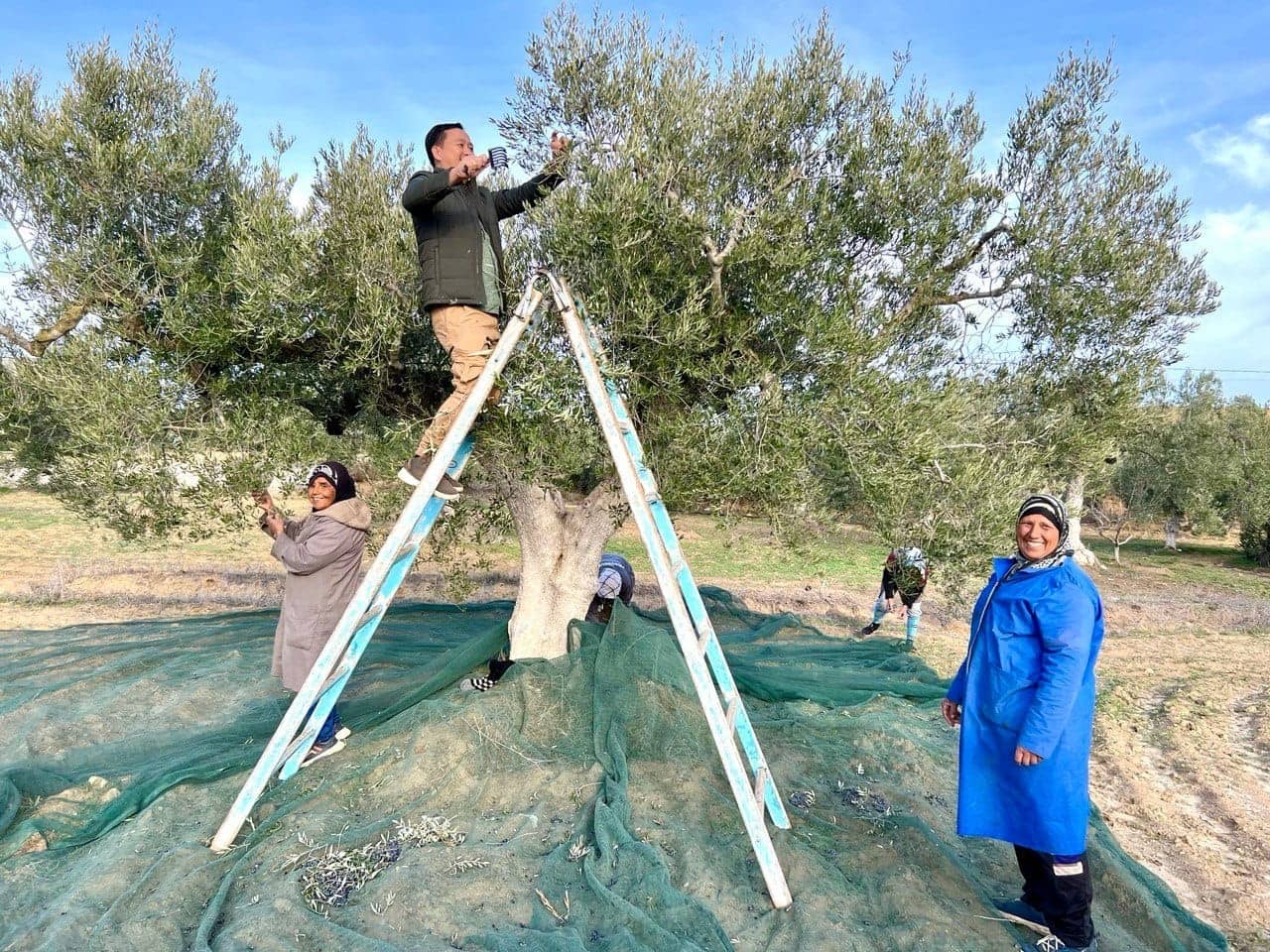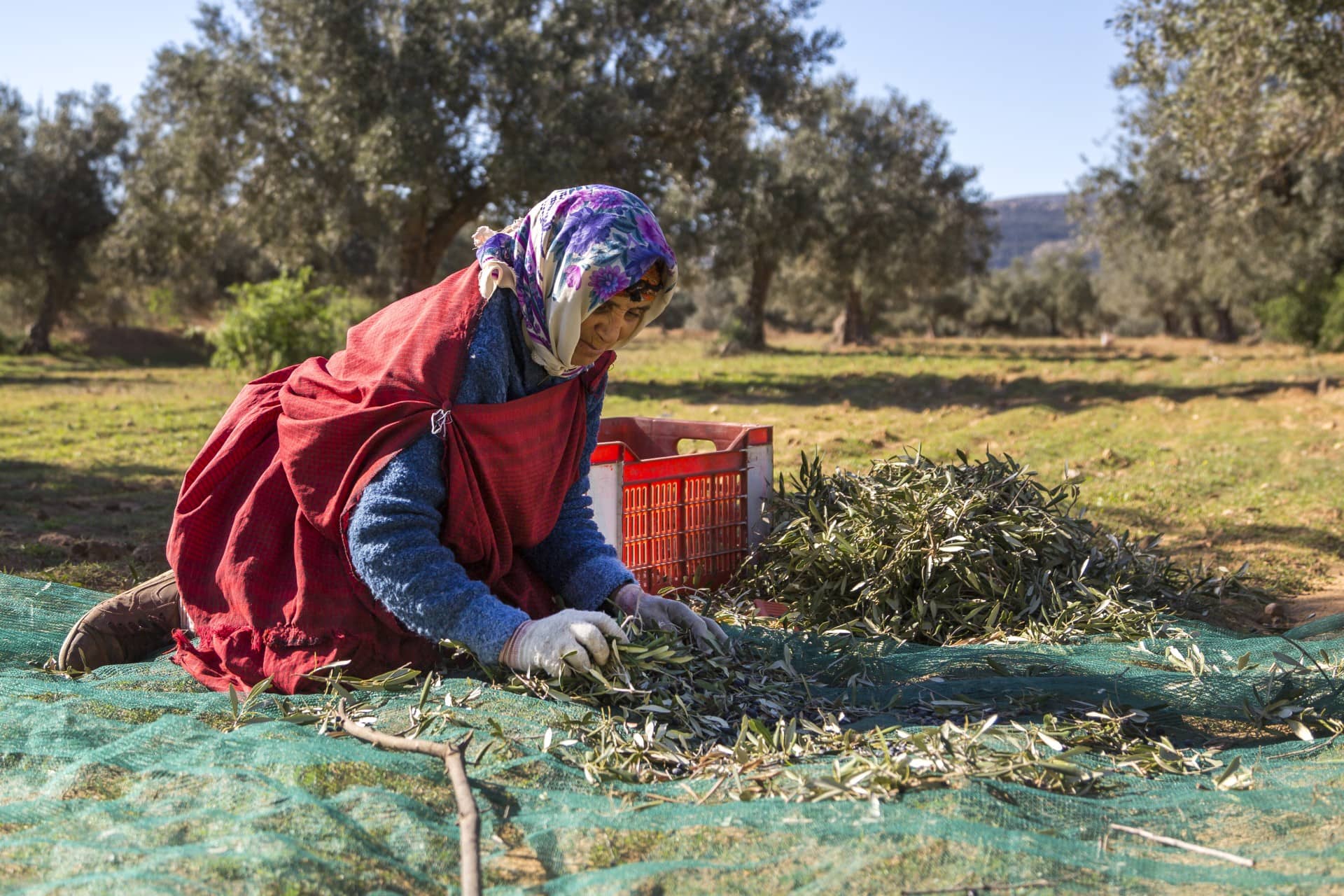Tunisian producers have won 27 awards — 13 Golds and 14 Silvers — at the NYIOOC World Olive Oil Competition, their third-highest success rate at the contest.
The North African country achieved this victory despite a mediocre harvest, which earlier this year was estimated to reach 180,000 tons. The yield was much lower than the 240,000 tons of olive oil they produced in the 2021/22 crop year.It’s an incredible feeling to have my hard work and dedication recognized on a global scale.
– Salah Ben Ayed, owner, Domaine Adonis
This drop was due to the long-running drought plaguing the North African country’s central and southern regions, where most of the large olive farms are located. Consequent high water prices for irrigation have had a knock-on effect, causing an ongoing increase in production costs.
The chief executive of the country’s National Olive Oil Office (ONH), Hamed Daly Hassen, said winning these awards at the NYIOOC is important for the international recognition of Tunisian olive oil’s high quality.
“Winning awards for Tunisian extra virgin olive oil at international competitions is a way to promote it to buyers and consumers on international markets,” he told Olive Oil Times.
Hassen said brand awareness drives preference for a particular oil and loyalty toward it. He said consumers esteem award-winning extra virgin olive oils higher in terms of safety and nutritional value, which makes winning awards at the NYIOOC important for marketing Tunisian oils internationally.
He emphasized that technical support by the ONH is crucial for winning awards at local and international well-recognized competitions and promoting Tunisian olive oil. He added that winning awards has helped to grow exports, with 80 percent of the country’s olive oil destined to be shipped abroad.
Hassen said that during 2021/22, Tunisia exported 30,000 tons of olive oil to 62 countries and that exports to the United States grew by 14 percent from 2006 to 2022 and 5 percent to Canada in the same period.
“We also added France, Brazil, Saudi Arabia and Japan, which have become major destinations of Tunisian olive oil in recent years,” he said.
Hassen added that award-winning Tunisian extra virgin olive oils are sold in smaller or niche markets and can reach higher prices.
“Although the winners are, for the most part, olive oil exporters, their oil is also sold in the domestic market,” he said. “Local consumers’ perception of these award-winning oils is very positive, which helps to improve the image of brands and sales volume.”
Among the winners at the world’s largest olive oil quality competition was Domaine Adonis from northwestern Tunisia, which earned four Gold Awards for its organic extra virgin olive oils. The producer won awards for its medium-intensity Arbosana, Chemlali, Chetoui and Koroneiki.

“I feel ecstatic and overwhelmed with joy after winning the international competition and receiving top ratings for my olive oil,” owner Salah Ben Ayed told Olive Oil Times. “It’s an incredible feeling to have my hard work and dedication recognized on a global scale. The win has given me a sense of validation and confidence in my abilities as an olive oil producer, and I am eager to continue improving and creating the best products possible.”
“I am extremely proud of my farm, my team and the recognition we have received for winning these international olive oil competitions,” he added. “More importantly, I am proud to be from Tunisia, a country that produces some of the world’s most exceptional olive oils.”
Ben Ayed attributed the success of his oils to the land, its rich soil and the care and hard work he puts into each of his trees.
“The soil is the foundation of my farm, and I make sure that it is always nourished and healthy,” he said. “I also take great care to shield my trees from pests, diseases and harsh weather conditions.”
“I oversee the pruning, watering, and harvesting of each tree, ensuring that only the best olives are selected for my oil,” Ben Ayed added. “The result is an amazing olive oil bursting with flavor and aroma.”
He said climate change had brought unpredictable changes in temperature and lack of rainfall, making it increasingly difficult to care for his olive trees in recent years.
“Despite these challenges, I remain committed to providing the best care for each and every one of my olive trees,” Ben Ayed said. “I have had to adapt my practices, such as using more drought-resistant varieties and more efficient irrigation systems to ensure that my trees continue to thrive.”
“Despite the difficulties, I am more determined than ever to produce the best olive oil possible, no matter what challenges come my way,” he added.
Tiger Power was another of Tunisia’s big winners at the competition, earning three awards for its 1629 brands this year. The producer won two Gold Awards for its medium Chetoui and organic medium Chemlali and a Silver Award for another medium Chemlali.

The company’s chief executive, Tiger Kong, said the Tiger Power team was emotional. “Our hard work really paid off, and we sincerely thank our team, farmers and loyal customers,” he said.
“This is the third year we have entered the NYIOOC,” he said. “In 2021, we earned nothing; in 2022, we earned one Gold Award; and in 2023, we earned two Gold Awards and one Silver,” Kong added. “So you can see we keep improving our quality to reach our dream. Today, we can prove that we can do it, and we can do it better next year.”
Kong said winning the awards at the NYIOOC solidifies the image of Tunisian extra virgin olive oil’s quality. He is confident that with these awards, customers and other producers will get to know his brand.
He added that the Tiger Power team’s love for their oils gives them a competitive edge. “We put our heart into every drop of oil, take care of them and love them as parents love their baby,” he said. “Our duty is to show the world that Tunisian olive oil is of the best oils in the world.”
Despite the success, Kong said the harvest was complicated by issues related to climate change and macroeconomic conditions. “The cost of taking care of our trees and production has increased sharply,” he said. “Everything has become so expensive.”
Another multiple-award winner at the 2023 NYIOOC is Fermes Ali Sfar from northeastern Tunisia, which took home two awards for its organic Tesoro del Rio brand: a Gold Award for its medium Chemlali and a Silver for its medium Chetoui.

“Winning a prize in the largest and most prestigious olive oil quality competition gives us a sense of satisfaction and accomplishment,” export manager Donia Sfar said. “It is a recognition of our hard work and dedication. Winning a Gold Award for the second year in a row gives us more motivation to continue striving for excellence in our endeavors,” she said.
She added that winning awards at the NYIOOC significantly impacts the brand and Tunisia by attracting investment to the country and contributing to economic growth.
Sfar explained that the awards would increase brand awareness and boost employee and stakeholder morale. In addition, she said winning awards at the NYIOOC attracts investment to Tunisia and contributes to economic growth.
Sfar said the quality of their olives and the location and conditions in which they are grown gives Fermes Ali Sfar’s product the competitive edge. “Our olives are pressed the traditional way using granite millstone and mat pressing,” she added.
She said it is essential to focus on their extraction method, the oil’s storage conditions and the final product’s acidity levels to help the extra virgin olive oil stand out from their competition. “This helps preserve the flavor and aroma of the oil over time,” she said.
Sfar described the harvest that birthed their coveted oil as slightly difficult due to a lack of rainfall followed by a severe drought, leading to a late harvest start.
“All this is due to climate change that has accelerated, bringing scorching heat throughout the Mediterranean region in recent summers,” she said. “Winter rains have repeatedly decreased in Tunisia, causing a drop in olive oil production.”
Source : Olive Oil Times
















